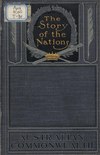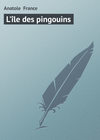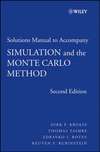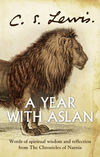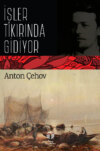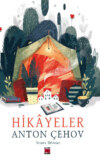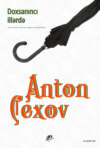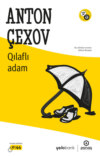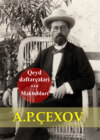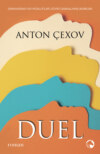Kitabı oku: «Letters of Anton Chekhov to His Family and Friends», sayfa 13
IRKUTSK,
June 7, 1890.
… The steamer from Sryetensk leaves on June 20th. Good Christians, what am I to do till the 20th? How am I to dispose of myself? The journey to Sryetensk will only take five or six days. I have greatly altered the route of my journey. From Habarovsk (look at the map [Footnote: Chekhov’s family had, during his absence, a map of Siberia on the wall by means of which they followed his progress.]) I am going not to Nikolaevsk, but by the Ussuri to Vladivostok, and from there to Sahalin. I must have a look at the Ussuri region. At Vladivostok I shall bathe in the sea and eat oysters.
It was cold till I reached Kansk; from Kansk (see map) I began to go down to the south. Everything is as green as with you, even the oaks are out. The birches here are darker than in Russia, the green is not so sentimental. There are masses of the Russian white service-tree, which here takes the place of both the lilac and the cherry. They say they make an excellent jam from the service-tree. I tasted some of the fruit pickled; it was not bad.
Two lieutenants and an army doctor are travelling with me. They have received their travelling expenses three times over, but have spent all the money, though they are travelling in one carriage. They are sitting without a farthing, waiting for the pay department to send them some money. They are nice fellows. They have had from fifteen hundred to two thousand roubles each for travelling expenses, and the journey will cost them next to nothing (excluding, of course, the cost of the stopping places). They do nothing but pitch into everybody at hotels and stations so that people are positively afraid to present their bills. In their company I pay less than usual… To-day for the first time in my life I saw a Siberian cat. It has long soft fur, and a gentle disposition.
… I felt homesick and sent you a telegram today asking you to subscribe together and send me a long telegram. It would be nothing to all of you, inhabitants of Luka, to fling away five roubles.
… With whom is Mishka in love? To what happy woman is Ivanenko telling stories of his uncle? … I must be in love with Jamais as I dreamed of her yesterday. In comparison with all the “jeunes Siberiennes” with their Yakut-Buriat physiognomies, who do not know how to dress, to sing, and to laugh, our Jamais, Drishka, and Gundassiha are simply queens. The Siberian girls and women are like frozen fish; one would have to be a walrus or a seal to get up a flirtation with them.
I am tired of my companions. It is much nicer travelling alone. I like silence better than anything on the journey and my companions talk and sing without stopping, and they talk of nothing but women. They borrowed a hundred and thirty-six roubles from me till to-morrow and have already spent it. They are regular sieves.
… The stations are sometimes thirty to thirty-five versts apart. You drive by night, you drive and drive, till you feel silly and light-headed, and if you venture to ask the driver how far it is to the next station, he will never say less than seventeen versts. That’s particularly agonizing when you have to go at a walking pace along a muddy road full of holes, and when you are thirsty. I have learned to do without sleep; I don’t mind a bit when they wake me. As a rule one does not sleep for one day and night, and then the next day at dinner-time there is a strained feeling in one’s eyelids; in the evening and in the night towards daybreak of the third day, one dozes in the chaise and sometimes falls asleep for a minute as one sits; at dinner and after dinner at the stations, while the horses are being harnessed, one lolls on the sofa, and the real torture only begins at night. In the evening, after drinking five glasses of tea, one’s face begins to burn, one’s body feels limp all over and longs to bend backwards; one’s eyes close, one’s feet ache in one’s big boots, one’s brain is in a tangle. If I allow myself to put up for the night I fall into a dead sleep at once; if I have strength of will to go on, I drop asleep in the chaise, however violent the jolting may be; at the stations the drivers wake one up, as one has to get out of the chaise and pay for the journey. They wake one not so much by shouting and tugging at one’s sleeve, as by the stink of garlic that issues from their lips; they smell of garlic and onion till they make me sick. I only learned to sleep in the chaise after Krasnoyarsk. On the way to Irkutsk I slept for fifty-eight versts, and was only once woken up. But the sleep one gets as one drives makes one feel no better. It’s not real sleep, but a sort of unconscious condition, after which one’s head is muddled and there’s a bad taste in one’s mouth.
Chinamen are like those decrepit old gentlemen dear Nikolay [Footnote: Chekhov’s brother.] used to like drawing. Some of them have splendid pigtails.
The police came to see me at Tomsk. Towards eleven o’clock the waiter suddenly announced to me that the assistant police-master wanted to see me. What was this for? Could it be politics? Could they suspect me of being a Voltairian? I said to the waiter, “Ask him in.” A gentleman with long moustaches walks in and introduces himself. It appears he is devoted to literature, writes himself, and has come to me in my hotel room as though to Mahomed at Mecca to worship. I’ll tell you why I thought of him. Late in the autumn he is going to Petersburg, and I have foisted my trunk upon him and asked him to leave it at the Novoye Vremya office. You might keep that in mind in case any one of us or our friends goes to Petersburg.
You might, by the way, look out for a place in the country. When I get back to Russia I shall take five years’ rest – that is, stay in one place and twiddle my thumbs. A place in the country will come in very handy. I think the money will be found, for things don’t look bad. If I work off the money I have had in advance (half of it is worked off already) I shall certainly borrow two or three thousand in the spring, to be paid off over a period of five years. That will not be against my conscience, as I have already let the publishing department of the Novoye Vremya make two or three thousand out of my books, and I shall let them make more.
I think I shall not begin on any serious work till I am five and thirty… I want to try personal life, of which I have had some before, but have not noticed it owing to various circumstances.
To-day I rubbed my leather coat with grease. It’s a splendid coat. It has saved me from catching cold. My sheepskin is a capital thing, too: it serves me as a coat and a mattress, both. One is as warm in it as on a stove. It’s wretched without pillows. Hay does not take the place of them, and with the continual friction there’s a lot of dust from it which tickles one’s face and prevents one from dozing. I haven’t a single sheet. That’s horrid too. And I ought to have taken some more trousers. The more luggage one has the better – there’s less jolting and more comfort.
Good-bye, though. I have got nothing more to write about. My greetings to all.
STATION LISTVENITCHNAYA,
ON LAKE BAIKAL, June 13.
I am having an idiotic time. On the evening of the 11th of June, the day before yesterday, we set off from Irkutsk, in the fond hope of catching the Baikal steamer, which leaves at four o’clock in the morning. From Irkutsk to Baikal there are only three stations. At the first station they informed us that all the horses were exhausted and that it was therefore impossible to go. We had to put up for the night. Yesterday morning we set off from that station, and by midday we reached Baikal. We went to the harbour, and in answer to our inquiries were told that the steamer did not go till Friday the fifteenth. This meant that we should have to sit on the bank and look at the water and wait. As there is nothing that does not end in time, I have no objection to waiting, and always wait patiently; but the point is the steamer leaves Sryetensk on the 20th and sails down the Amur: if we don’t catch it we must wait for the next steamer, which does not go till the 30th. Merciful Heavens, when shall I get to Sahalin!
We drove to Baikal along the bank of the Angara, which rises out of Lake Baikal and flows into the Yenissey. Look at the map. The banks are picturesque. Mountains and mountains, and dense forests on the mountains. The weather was exquisite still, sunny and warm; as I drove I felt I was exceptionally well; I felt so happy that I cannot describe it. It was perhaps the contrast after the stay at Irkutsk, and because the scenery on the Angara is like Switzerland. It is something new and original. We drove along the river bank, came to the mouth of the river, and turned to the left; then we came upon the bank of Lake Baikal, which in Siberia is called the sea. It is like a mirror. The other side, of course, is out of sight; it is ninety versts away. The banks are high, steep, stony, and covered with forest, to right and to left there are promontories which jut into the sea like Au-dag or the Tohtebel at Feodosia. It’s like the Crimea. The station of Listvenitchnaya lies at the water’s edge, and is strikingly like Yalta: if the houses were white it would be exactly like Yalta. Only there are no buildings on the mountains, as they are too overhanging and it is impossible to build on them.
We have taken a little barn of a lodging that reminds one of any of the Kraskovsky summer villas. Just outside the window, two or three yards from the wall, is Lake Baikal. We pay a rouble a day. The mountains, the forests, the mirror-like Baikal are all poisoned for me by the thought that we shall have to stay here till the fifteenth. What are we to do here? What is more, we don’t know what there is for us to eat. The inhabitants feed upon nothing but garlic. There is neither meat nor fish. They have given us no milk, but have promised it. For a little white loaf they demanded sixteen kopecks. I bought some buckwheat and a piece of smoked pork, and asked them to make a thin porridge of it: it was not nice, but there was nothing to be done, I had to eat it. All the evening we hunted about the village to find someone who would sell us a hen, and found no one… But there is vodka. The Russian is a great pig. If you ask him why he doesn’t eat meat and fish he justifies himself by the absence of transport, ways and communications, and so on, and yet vodka is to be found in the remotest villages and as much of it as you please. And yet one would have supposed that it would have been much easier to obtain meat and fish than vodka, which is more expensive and more difficult to transport… Yes, drinking vodka must be much more interesting than fishing in Lake Baikal or rearing cattle.
At midnight a little steamer arrived; we went to look at it, and seized the opportunity to ask if there was anything to eat. We were told that to-morrow we should be able to get dinner, but that now it was late, the kitchen fire was out, and so on. We thanked them for “to-morrow” – it was something to look forward to anyway! But alas! the captain came in and told us that at four o’clock in the morning the steamer was setting off for Kultuk. We thanked him. In the refreshment bar, where there was not room to turn round, we drank a bottle of sour beer (thirty-five kopecks), and saw on a plate some amber beads – it was salmon caviare. We returned home, and to sleep. I am sick of sleeping. Every day one has to put down one’s sheepskin with the wool upwards, under one’s head one puts a folded greatcoat and a pillow, and one sleeps on this heap in one’s waistcoat and trousers… Civilization, where art thou?
To-day there is rain and Lake Baikal is plunged in mist. “Interesting,” Semaskho would say. It’s dull. One ought to sit down and write, but one can never work in bad weather. One has a foreboding of merciless boredom; if I were alone I should not mind but there are two lieutenants and an army doctor with me, who are fond of talking and arguing. They don’t understand much but they talk about everything. One of the lieutenants, moreover, is a bit of a Hlestakov and a braggart. When one is travelling one absolutely must be alone. To sit in a chaise or in a room alone with one’s thoughts is much more interesting than being with people.
Congratulate me: I sold my own carriage at Irkutsk. How much I gained on it I won’t say, or mother would fall into a faint and not sleep for five nights.
Your Homo Sachaliensis,A. CHEKHOV.
TO HIS MOTHER
STEAMER “YERMAK,” June 20, 1890.
Greeting, dear ones at home!
At last I can take off my heavy muddy boots, my shabby breeches, and my blue shirt which is shiny with dust and sweat; I can wash and dress like a human being. I am not sitting in a chaise but in a first-class cabin of the steamer Yermak. This change took place ten days ago, and this is how it happened. I wrote to you from Listvenitchnaya that I was late for the Baikal steamer, that I had to cross Lake Baikal on Friday instead of Tuesday, and that owing to this I should only be able to catch the Amur steamer on the 30th. But fate is capricious, and often plays us tricks we do not expect. On Thursday morning I went out for a walk on the shores of Lake Baikal; behold – the funnel of one of the little steamers is smoking. I inquire where the steamer is going. They tell me, “Across the sea” to Klyuevo; some merchant had hired it to take his waggons of goods across the Lake. We, too, wanted to cross “the sea” and to go to Boyarskaya station. I inquire how many versts from Klyuevo to Boyarskaya. They tell me twenty-seven. I run back to my companions and beg them to take the risk of going to Klyuevo. I say the “risk” because, going to Klyuevo where there is nothing but a harbour and a watchman’s hut, we ran the risk of not finding horses, having to stay on at Klyuevo, and being late for Friday’s steamer, which for us would be worse than Igor’s death, as we should have to wait till Tuesday. My companions consented. We gathered together our belongings, with cheerful legs stepped on to the steamer and straight to the refreshment bar: soup, for the love of God! Half my kingdom for a plate of soup! The refreshment bar was very nasty and cramped; but the cook, Grigory Ivanitch, who had been a house-serf at Voronezh, turned out to be at the tip-top of his profession. He fed us magnificently. The weather was still and sunny. The water of Lake Baikal is the colour of turquoise, more transparent than the Black Sea. They say that in deep places you can see the bottom over a verst below; and I myself have seen to such a depth, with rocks and mountains plunged in the turquoise-blue, that it sent a shiver all over me. Our journey over Lake Baikal was wonderful. I shall never forget it as long as I live. But I will tell you what was not nice. We travelled third class, and the whole deck was occupied by the waggon-horses, which were wild as mad things. These horses gave a special character to our crossing: it seemed as though we were in a brigand’s steamer. At Klyuevo the watchman undertook to convey our luggage to the station; he drove the cart while we walked along the very picturesque shore. Levitan was an ass not to come with me. The way was through woods: on the right, woods running uphill; on the left, woods running down to the Lake. Such ravines, such crags! The colouring of Lake Baikal is soft and warm. It was, by the way, very warm. After walking eight versts we reached the station of Myskan, where a Kyahtan official, who was also on his travels, regaled us with excellent tea, and where we got the horses for Boyarskaya; and so we set off on Thursday instead of Friday; what is more, we got twenty-four hours in advance of the post, which usually takes all the horses at the station. We began driving as fast as we could, cherishing a faint hope of reaching Sryetensk by the 20th. I will tell you when we meet about my journey along the bank of the Selenga and across Transbaikalia. Now I will only say that Selenga is one continuous loneliness, and in Transbaikalia I found everything I wanted: the Caucasus, and the valley of the Psyol, and the Zvenigorod district, and the Don. By day you gallop through the Caucasus, at night along the steppe of the Don; in the morning, rousing yourself from slumber, behold the province of Poltava – and so for the whole thousand versts. Verhneudinsk is a nice little town. Tchita is a wretched place, in the style of Sumy. I need hardly say that we had no time to think of sleep or dinner. One gallops on thinking of nothing but the chance that at the next station we might not get horses, and might be kept five or six hours. We did two hundred versts in twenty-four hours – one can’t do more than that in the summer. We were stupefied. The heat was fearful by day, while at night it was so cold that I had to put on my leather coat over my cloth one. One night I even wore my sheepskin. Well, we drove on and on, and reached Sryetensk this morning just an hour before the steamer left, giving the drivers from the last two stations a rouble each for themselves.
And so my horse-journey is over. It has lasted two months (I set out on the 21st of April). If we exclude the time spent on the railway and the steamer, the three days spent in Ekaterinburg, the week in Tomsk, the day in Krasnoyarsk, the week in Irkutsk, the two days on the shores of Lake Baikal, and the days wasted in waiting for boats to cross the floods, you can judge of the rate at which I have driven. My journey has been most successful, I wish nothing better for anyone. I have not once been ill, and of the mass of things I had with me I have lost nothing but a penknife, the strap off my trunk, and a little jar of carbolic ointment. My money is safe. It is not often that anyone succeeds in travelling a thousand versts so well.
I have grown so used to driving that now I don’t feel like myself, and cannot believe that I am not in a chaise and that I don’t hear the rattling and the jingling of the bells. It seems strange that when I go to bed I can stretch out my legs full length, and that my face is not covered with dust. But what is stranger still is that the bottle of brandy Kuvshinnikov gave me has not been broken, and that the brandy is still in it, every drop of it. I have vowed not to uncork it except on the shore of the Pacific.
I am sailing down the Shilka, which runs into the Amur at the Pokrovskaya Stanitsa. The river is not broader than the Psyol, it is even narrower. The shores are stony: there are crags and forests. It is absolutely wild… We tack about to avoid foundering on a sandbank, or running our helm into the banks: steamers and barges often do so in the rapids. It’s stifling. We have just stopped at Ust-Kara, where we have landed five or six convicts. There are mines here and a convict prison.
Yesterday we were at Nertchinsk. The little town is nothing to boast of, but one could live there.
And how are you, messieurs and mesdames? I know positively nothing about you. You might subscribe twopence each and send me a full telegram.
The steamer will stay the night at Gorbitsa. The nights here are foggy, sailing is dangerous, I shall send off this letter at Gorbitsa.
… I am going first class because my companions are in the second. I have got away from them. We have driven together (three in one chaise), we have slept together and are sick of each other, especially I of them.
My handwriting is very bad, shaky. That is because the steamer rocks. It’s difficult to write.
I broke off here. I went to my lieutenants and had tea. They have both had a long sleep and were in a very cordial mood. One of them, Lieutenant N. (the surname jars upon my ear), is in the infantry; he is a tall, well-fed, loud-voiced Courlander, a great braggart and Hlestakov, who sings songs from every opera, but has no more ear than a smoked herring, an unlucky fellow who has squandered all the money for his travelling expenses, knows all Mickiewicz by heart, is ill-bred, far too unreserved, and babbles till it makes you sick. Like me, he is fond of talking about his uncles and aunts. The other lieutenant, M., a geographer, is a quiet, modest, thoroughly well-educated fellow. If it were not for N., I could travel with the other for a million versts without being bored. But with N., who intrudes into every conversation, the other bores me too… I believe we are reaching Gorbitsa.
To-morrow I will make up the form of a telegram which you must send me to Sahalin. I will try to put all I want to know in thirty words, and you must try and keep strictly to the pattern.
The gad-flies bite.

